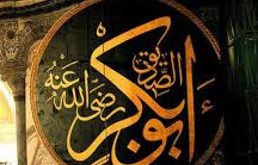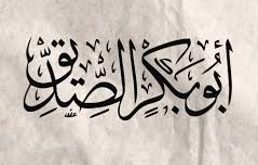Before migrating to Madinah Munawwarah, Hadhrat Abu Bakr Siddeeq (Radhiallahu Anhu) set free seven slaves for the sake of Allah Ta’aala. On one occasion, his father Abu Quhaafa met him and asked: “Why are you only freeing those slaves that are weak (as you are aware that they cannot help you at the time of need)? If instead you free strong and capable slaves, it will be to your benefit; they will assist you in your works and protect you against your enemies. Hadhrat Abu Bakr Siddeeq (Radhiallahu Anhu) replied: “O my beloved father! I have not freed these slaves for my personal need or benefit, instead I have freed them only for the sake of Allah Ta'aala. Hence, I only wish for recompense and reward from Allah Ta’aala.” Upon this, Allah Ta’aala revealed the verses:
وَسَيُجَنَّبُهَا الْأَتْقَى ﴿١٧﴾ الَّذِي يُؤْتِي مَالَهُ يَتَزَكَّىٰ ﴿١٨﴾ وَمَا لِأَحَدٍ عِندَهُ مِن نِّعْمَةٍ تُجْزَىٰ ﴿١٩﴾ إِلَّا ابْتِغَاءَ وَجْهِ رَبِّهِ الْأَعْلَىٰ ﴿٢٠﴾ وَلَسَوْفَ يَرْضَىٰ ﴿٢١﴾ (سورة الليل)
And the one who fears Allah Ta’aala (Abu Bakr (Radhiallahu Anhu), and spends his wealth (in charity) in order to gain self-purification will be saved from it (Jahannum). There is no favour (that he does to anyone) in exchange of which he expects a recompense (e.g. freeing Hadhrat Bilaal (Radhiallahu Anhu)) except (he does whatever he does) with the intention of earning the pleasure of his Lord, the Most High. And surely he will soon be happy (with the rewards that his Lord will bless him). [1]
[1] تاريخ الخلفاء
 Ihyaaud Deen An Effort to Revive Deen in Totality
Ihyaaud Deen An Effort to Revive Deen in Totality



